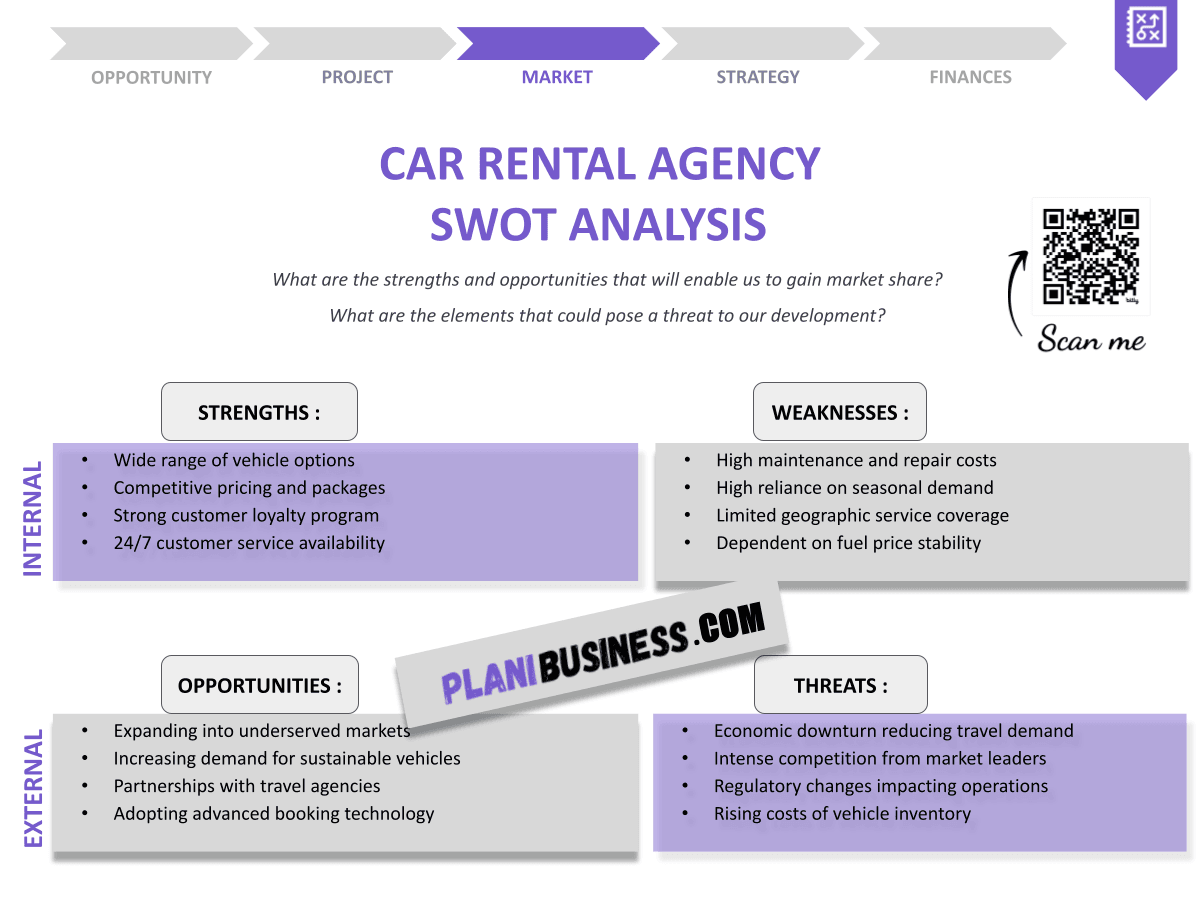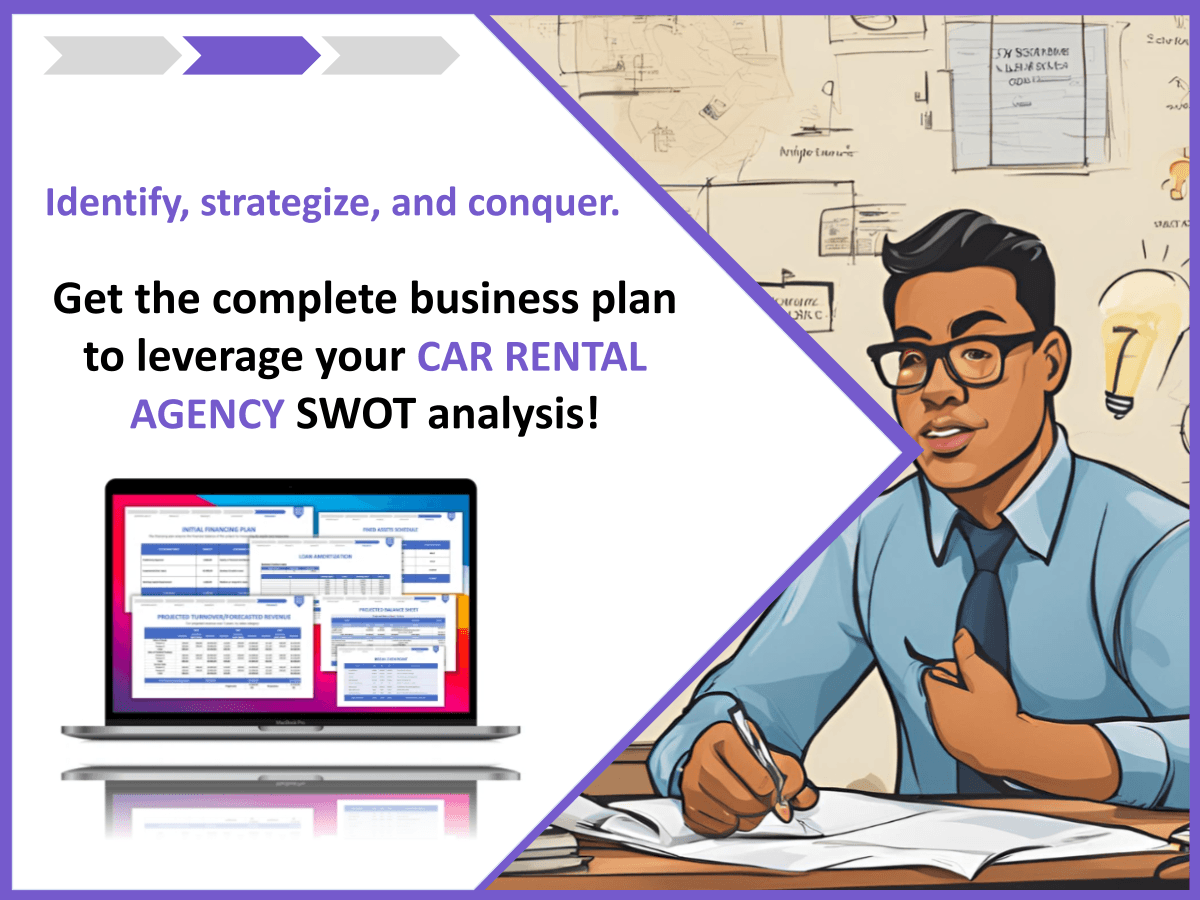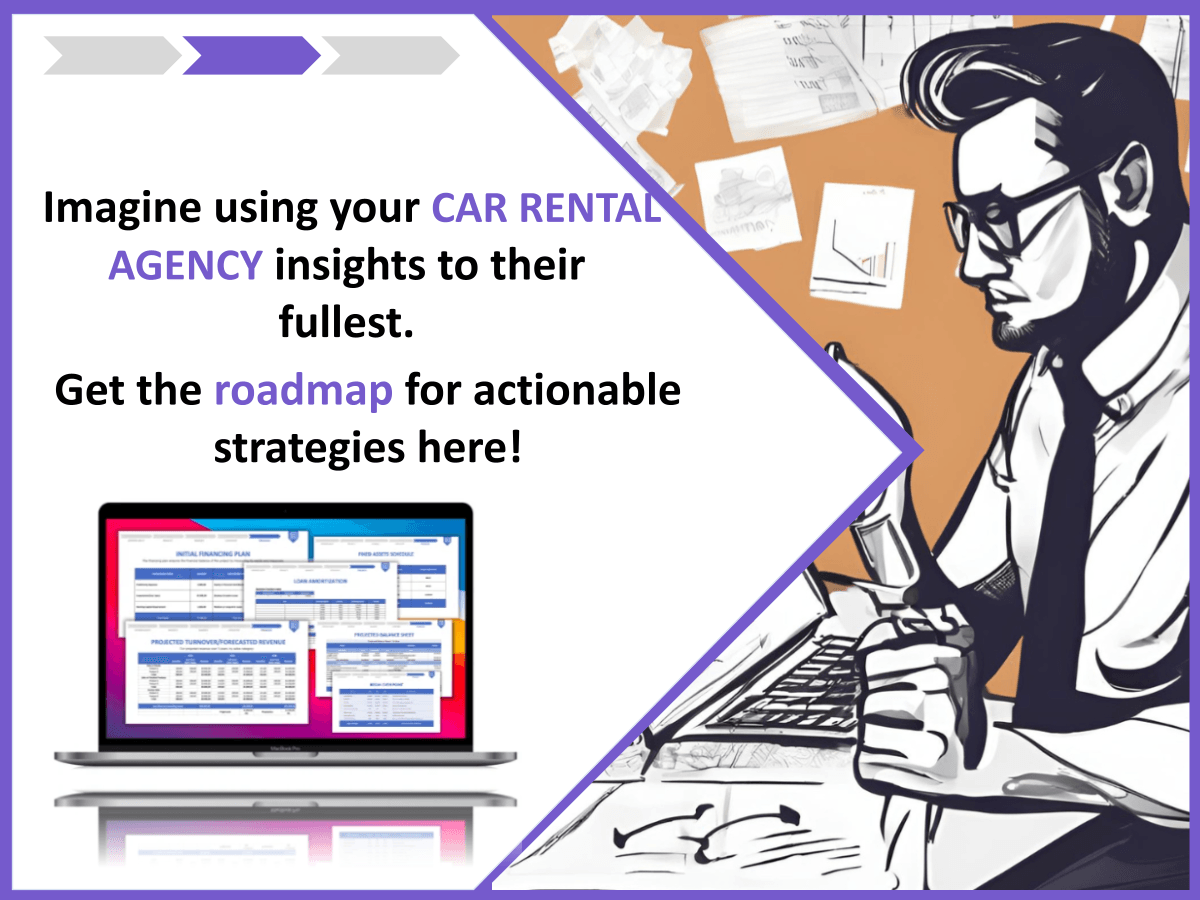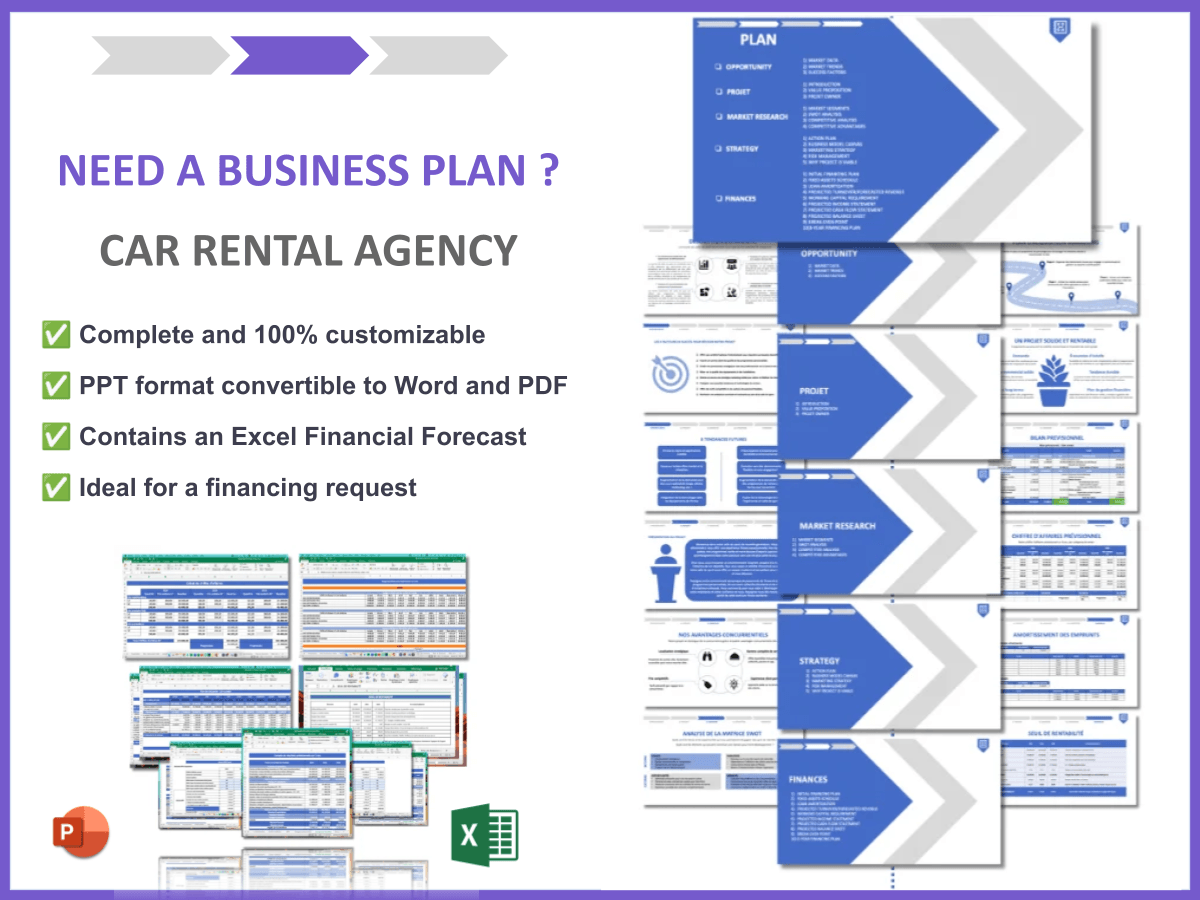Why Should You Have a SWOT Analysis for a Car Rental Agency?
Have you ever wondered why some car rental agencies thrive while others barely survive? It’s not just luck—it’s strategic planning. A SWOT analysis for your car rental agency can unlock insights that help you navigate the competitive landscape. This simple yet powerful tool identifies your agency’s Strengths, Weaknesses, Opportunities, and Threats, allowing you to make informed decisions and stay ahead of the game.
What is a SWOT Analysis?
A SWOT analysis is a strategic planning tool that helps businesses assess their internal strengths and weaknesses, along with external opportunities and threats. It’s an essential exercise for any car rental agency aiming to improve its market position.
- Understanding the value of SWOT analysis.
- Step-by-step guide on conducting a SWOT analysis.
- Real-world examples from successful car rental agencies.
- Common strengths of thriving agencies.
- Identifying weaknesses and areas for improvement.
- Exploring opportunities in the car rental market.
- Recognizing potential threats and how to mitigate them.
- Actionable tips for implementing strategies.
- The role of customer feedback in SWOT analysis.
- A conclusion that encourages proactive planning.
How Do You Write a SWOT Analysis for a Car Rental Agency?
To create a robust SWOT analysis for your car rental agency, follow these steps:
Strengths
Your agency’s strengths could include a well-established brand, excellent customer service, and a diverse fleet of vehicles.
Strong relationships with local businesses and tourism boards can enhance visibility and drive referrals.
Advanced technology, like user-friendly booking systems, can provide a competitive edge.
A loyal customer base can be a significant strength, as repeat customers often bring in steady revenue.
Weaknesses
Limited marketing budgets can hinder growth and visibility in a crowded market.
Dependence on a specific geographic area can expose the agency to local economic downturns.
Outdated fleet vehicles may lead to higher maintenance costs and customer dissatisfaction.
Poor online presence can result in lost opportunities for bookings.
Opportunities
Expanding into new geographic markets can open up additional revenue streams.
Collaborating with travel agencies or hotels can create mutual benefits and increase bookings.
The rise of eco-conscious consumers presents opportunities for agencies to invest in hybrid or electric vehicles.
Utilizing social media for marketing can attract a younger demographic.
Threats
Increased competition from ride-sharing services can pose a significant threat to traditional car rental agencies.
Economic downturns can lead to reduced travel and, consequently, fewer rentals.
Changing regulations in the transportation industry can impact operational costs.
Negative online reviews can damage reputation and deter potential customers.
SWOT Example N°1 for [Agency Name]
Here’s a practical example of a SWOT analysis for a successful car rental agency.
| SWOT | Analysis |
|---|---|
| Strengths | Established brand recognition, diverse fleet. |
| Weaknesses | Limited marketing budget, outdated website. |
| Opportunities | Expansion into eco-friendly vehicle rentals. |
| Threats | Competition from local businesses and ride-sharing. |
Summary:
- Strong brand presence.
- Need for digital marketing enhancement.
- Potential in eco-friendly offerings.
- Risks from local competition.
Utilizing this example, the agency can leverage its strengths to enhance brand loyalty while addressing weaknesses through a revamped marketing strategy. Exploring eco-friendly options could also attract a new customer base.
SWOT Example N°2 for [Agency Name]
This example highlights another car rental agency‘s strategic positioning.
| SWOT | Analysis |
|---|---|
| Strengths | Excellent customer service, competitive pricing. |
| Weaknesses | Limited vehicle options, small market share. |
| Opportunities | Partnerships with local events and festivals. |
| Threats | Fluctuating fuel prices impacting costs. |
Summary:
- Customer service is a strong point.
- Need for a broader fleet.
- Events partnership could boost visibility.
- Fuel prices are a looming concern.
This agency can capitalize on its customer service by promoting it in marketing efforts while working to expand its fleet to meet diverse customer needs.
SWOT Example N°3 for [Agency Name]
Analyzing yet another agency can provide more insights.
| SWOT | Analysis |
|---|---|
| Strengths | Strong online presence, diverse marketing strategies. |
| Weaknesses | High dependency on seasonal tourism. |
| Opportunities | Expansion of services to corporate clients. |
| Threats | Economic instability affecting travel budgets. |
Summary:
- Strong digital marketing.
- Seasonal fluctuations in demand.
- Corporate services can diversify income.
- Economic shifts are a concern.
By diversifying its customer base to include corporate clients, this agency can stabilize income throughout the year.
SWOT Example N°4 for [Agency Name]
This example further illustrates the strategic approach.
| SWOT | Analysis |
|---|---|
| Strengths | High customer satisfaction ratings, loyalty programs. |
| Weaknesses | Limited geographic reach, reliance on a few key clients. |
| Opportunities | Growing demand for long-term rentals. |
| Threats | New entrants in the market with aggressive pricing. |
Summary:
- Customer satisfaction is high.
- Geographic limitations are a risk.
- Long-term rentals present a growth opportunity.
- Pricing competition is intense.
Focusing on expanding geographically while promoting long-term rental options could prove beneficial for this agency.
SWOT Example N°5 for [Agency Name]
This example further illustrates a different agency’s strategic positioning.
| SWOT | Analysis |
|---|---|
| Strengths | Innovative technology use, strong referral program. |
| Weaknesses | Poor vehicle maintenance history. |
| Opportunities | Increasing travel trends post-pandemic. |
| Threats | Regulatory changes in the rental industry. |
Summary:
- Innovation is a key strength.
- Maintenance issues need addressing.
- Post-pandemic travel trends are favorable.
- Regulatory risks are present.
Addressing maintenance concerns while leveraging technology can help this agency thrive in a recovering market.
SWOT Example N°6 for [Agency Name]
This example highlights another car rental agency’s strategic positioning.
| SWOT | Analysis |
|---|---|
| Strengths | Flexible rental options, strong online reviews. |
| Weaknesses | High turnover of staff, limited loyalty rewards. |
| Opportunities | Collaborations with ride-sharing platforms. |
| Threats | Potential for increased insurance costs. |
Summary:
- Flexibility is a strong point.
- Staff turnover is a concern.
- Collaborations can enhance visibility.
- Insurance costs are unpredictable.
Improving employee retention strategies while seeking partnerships can help mitigate risks and enhance service offerings.
SWOT Example N°7 for [Agency Name]
This example provides further insights into another car rental agency.
| SWOT | Analysis |
|---|---|
| Strengths | Competitive pricing models, eco-friendly fleet. |
| Weaknesses | Marketing limitations, outdated technology. |
| Opportunities | Expansion into international markets. |
| Threats | Economic downturns impacting travel. |
Summary:
- Pricing models are attractive.
- Marketing limitations exist.
- International expansion is promising.
- Economic factors are unpredictable.
Focusing on enhancing marketing efforts could help this agency maximize its competitive pricing advantage.
SWOT Example N°8 for [Agency Name]
This example wraps up our analysis with another strategic approach.
| SWOT | Analysis |
|---|---|
| Strengths | Strong community ties, diverse fleet. |
| Weaknesses | Inconsistent customer service experiences. |
| Opportunities | Growing tourism in the area. |
| Threats | Increased competition from established brands. |
Summary:
- Community ties are beneficial.
- Service inconsistency needs to be addressed.
- Tourism growth can be leveraged.
- Competition is intensifying.
Improving service consistency while leveraging community ties can create a stronger market position.
SWOT Example N°9 for [Agency Name]
This example highlights another car rental agency‘s strategic positioning.
| SWOT | Analysis |
|---|---|
| Strengths | Excellent customer engagement, user-friendly app. |
| Weaknesses | High operational costs. |
| Opportunities | Trends toward subscription-based rentals. |
| Threats | Fluctuating demand in off-peak seasons. |
Summary:
- Customer engagement is strong.
- Operational costs are high.
- Subscription models are an opportunity.
- Demand fluctuations pose risks.
Exploring subscription models can help stabilize income throughout the year.
SWOT Example N°10 for [Agency Name]
This final example wraps up our analysis with one last agency’s approach.
| SWOT | Analysis |
|---|---|
| Strengths | Comprehensive insurance options, strong online presence. |
| Weaknesses | Limited vehicle maintenance services. |
| Opportunities | Expansion into corporate rental markets. |
| Threats | Rising fuel prices affecting operational costs. |
Summary:
- Insurance options are robust.
- Maintenance services need improvement.
- Corporate market expansion is promising.
- Fuel prices are a concern.
Enhancing maintenance services while targeting corporate clients could provide a significant boost.
Conclusion
In summary, conducting a SWOT analysis for your car rental agency is not just beneficial—it’s essential for strategic planning. By understanding your strengths, weaknesses, opportunities, and threats, you can make informed decisions that propel your agency forward. If you’re looking for a solid foundation to build your business, check out this business plan template for a Car Rental Agency that can guide you in creating a comprehensive strategy.
Additionally, if you want to dive deeper into the industry, don’t miss our articles on How to Launch a Car Rental Agency? and How to Kickstart a Car Rental Agency Marketing Plan? With Example. These resources will provide you with valuable insights and actionable strategies to enhance your business approach.
FAQ
1. What is a SWOT analysis?
A SWOT analysis is a strategic planning tool that evaluates a business’s strengths, weaknesses, opportunities, and threats to aid in decision-making.
2. Why is a SWOT analysis important for car rental agencies?
This analysis helps car rental agencies identify their competitive advantages and areas needing improvement, leading to better strategic planning.
3. How frequently should a SWOT analysis be performed?
It is recommended to conduct a SWOT analysis annually or whenever significant changes occur in the market or business environment.
4. What are common strengths of car rental agencies?
Common strengths include strong brand recognition, excellent customer service, and a diverse fleet of vehicles.
5. How can weaknesses be effectively addressed?
By implementing targeted marketing strategies and improving operational practices, agencies can effectively tackle their weaknesses.
6. What opportunities exist for car rental agencies?
Opportunities may include expanding services, collaborating with local businesses, or investing in eco-friendly vehicles to attract a new customer base.
7. What threats should agencies be aware of?
Agencies should monitor threats such as increased competition from ride-sharing services and economic downturns that may impact travel.
8. Can customer feedback influence a SWOT analysis?
Yes, customer feedback is crucial for identifying strengths and weaknesses, helping agencies adjust their strategies accordingly.
9. How can a SWOT analysis be used effectively?
Utilizing the insights from a SWOT analysis allows businesses to create actionable strategies that capitalize on their strengths while addressing weaknesses.
10. Is a SWOT analysis a one-time task?
No, it should be revisited regularly to remain relevant and reflective of the current market conditions and internal capabilities.







